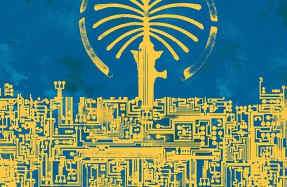Elon Musk

THE RICHEST MAN IN THE WORLD DOES NOT OWN a house and has recently been selling off his fortune. He tosses satellites into orbit and harnesses the sun; he drives a car he created that uses no gas and barely needs a driver. With a flick of his finger, the stock market soars or swoons. An army of devotees hangs on his every utterance. He dreams of Mars as he bestrides Earth, square-jawed and indomitable. Lately, Elon Musk also likes to live-tweet his poops.
“Just dropping some friends off at the pool,” the 50-year-old zillionaire informed his 66 million Twitter followers on the evening of Nov. 29, having previously advised that at least half his tweets were “made on a porcelain throne.” After an interval—21 minutes, if you must know—an update: “Splish splash.”
“Sometimes I do hit some resonant notes with respect to humor,” Musk says of his puerile expressions. It’s a warm, windy December day at Starbase, his new rocket-fabrication and launch facility at the southern tip of Texas. Two of his Starship rockets—gleaming, pointy-nosed, 160-ft. stainless-steel silos—are silhouetted behind him in the setting sun. “But you know, not all jokes land.”
This is the man who aspires to save our planet and get us a new one to inhabit: clown, genius, edgelord, visionary, industrialist, showman, cad; a madcap hybrid of Thomas Edison, P.T. Barnum, Andrew Carnegie and Watchmen’s Doctor Manhattan, the brooding, blue-skinned man-god who invents electric cars and moves to Mars. His startup rocket company, SpaceX, has leapfrogged Boeing and others to own America’s spacefaring future. His car company, Tesla, controls two-thirds of the multibillion-dollar electric-vehicle market it pioneered and is valued at a cool $1 trillion. That has made Musk, with a net worth of more than $250 billion, the richest private citizen in history, at least on paper. He’s a player in robots and solar, cryptocurrency and climate, brain-computer implants to stave off the menace of artificial intelligence and underground tunnels to move people and freight at super speeds. He dominates Wall Street: “The way finance works now is that things are valuable not based on their cash flows but on their proximity to Elon Musk,” Bloomberg columnist Matt Levine wrote in February, after Musk’s “Gamestonk!!” tweet vaulted the meme-stock craze into the stratosphere.
Musk has spent a lifetime defying the haters; now, it seems, he’s finally in position to put them in their place. For 2021 was the year of Elon Unbound. In April, SpaceX won NASA’s exclusive contract to put U.S. astronauts on the moon for the first time since 1972. In May, Musk hosted Saturday Night Live. In October, car-rental giant Hertz announced it planned to add 100,000 Teslas to its fleet. The juvenile missives from his unmistakably phallic Twitter avatar came days after one of his rockets launched NASA’s first anti-asteroid planetary-defense test; a few weeks before another launched a first-of-its-kind mission to study cosmic X-rays; and amid Musk’s sale of 10% of his Tesla stock, a process that roiled markets, cost him billions and should produce enough tax revenue to fund the Commerce Department for a year. The sale was prompted by a Twitter poll Musk posted in a fit of pique over liberal Senators’ proposals to tax billionaires.

Many people are described as larger than life, but few deserve it. How many of us truly exceed our life span? How many will make it into the digital textbooks our spacefaring descendants will study? As Shakespeare observed in Julius Caesar, it’s far easier to be remembered for doing evil than doing good. How many will leave a mark on the world—much less the universe—for their contributions rather than their crimes? A few short years ago, Musk was roundly mocked as a crazy con artist on the verge of going broke. Now this shy South African with Asperger’s syndrome, who escaped a brutal childhood and overcame personal tragedy, bends governments and industry to the force of his ambition.
To Musk, his vast fortune is a mere side effect of his ability not just to see but to do things others cannot, in arenas where the stakes are existential. “He was raised in a tough environment and born with a very special brain,” says Antonio Gracias, Musk’s close friend of two decades, who has held seats on the boards of Tesla and SpaceX. “Ninety-nine-point-nine percent of people in that situation don’t come out of it. Some small percentage come out of it with the ability he has to make great decisions under extraordinary pressure and the never-ending drive to change the course of humanity.”
Such cosmic ambition rarely comes without consequences, and Musk still must answer to earthly authorities. His companies have faced
You’re reading a preview, subscribe to read more.
Start your free 30 days





